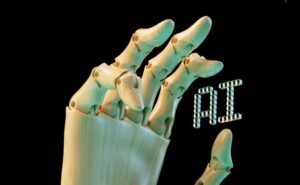AI Application in Healthcare
Artificial Intelligence (AI) has been revolutionizing various industries, and healthcare is no exception. With the potential to transform patient care, AI is being applied in innovative ways to solve complex medical problems, improve diagnosis accuracy, enhance treatment outcomes, and streamline administrative tasks. This article explores some key applications of AI in healthcare and the benefits it brings.
Key Takeaways:
- AI is transforming healthcare by improving diagnosis accuracy and treatment outcomes.
- AI can automate administrative tasks, freeing up healthcare professionals’ time for more critical tasks.
- Machine learning algorithms enable personalized medicine and predictive analytics, leading to better patient care.
1. AI in Diagnostics
One of the most significant impacts of AI in healthcare is its ability to aid in diagnostics. **Machine learning algorithms** can analyze vast amounts of medical data, including patient records, medical images, and genetic data, to **identify patterns and detect abnormalities**. This assists healthcare professionals in making more accurate diagnoses and determining the most appropriate treatments. *By leveraging AI, medical professionals can greatly reduce the chances of misdiagnosis*.
2. AI in Treatment Planning
AI is also playing a crucial role in developing personalized treatment plans. By analyzing patients’ individual characteristics and medical histories, **AI algorithms can provide tailored treatment recommendations**. Additionally, AI can improve treatment precision by **assisting during surgical procedures** through image processing and analysis. *The integration of AI in treatment planning leads to more effective and efficient healthcare interventions*.
3. AI in Administrative Tasks
One area where AI excels is automating administrative tasks in healthcare settings. From appointment scheduling and managing electronic health records to billing and coding, AI-powered systems can **reduce paperwork and enhance workflow efficiency**. Healthcare professionals can then focus more on patient care, spending less time on administrative duties. *AI streamlines administrative processes, contributing to enhanced productivity in healthcare organizations*.
4. AI in Health Monitoring
The proliferation of wearable devices has led to an abundance of health data that can be utilized with AI. **By analyzing real-time data**, AI algorithms can monitor patients’ vital signs, detect anomalies, and provide **early warnings for potential health issues**. This remote monitoring enables preventive care management and can significantly improve patient outcomes. *Using AI for health monitoring promotes proactive healthcare and early intervention for better patient well-being*.
5. AI in Drug Discovery
Developing new drugs is an intricate and resource-intensive process. AI is revolutionizing this field by expediting drug discovery and development. Machine learning algorithms can **analyze vast amounts of data** to identify potential drug candidates, predict their efficacy, and optimize dosages. This enables researchers to make more informed decisions, reducing time and costs. *AI-driven drug discovery enhances the efficiency and success rate of finding new treatments*.
| Area | Benefit |
|---|---|
| Diagnostics | Improved accuracy of diagnoses |
| Treatment Planning | Personalized and precise treatment recommendations |
| Benefit | Explanation |
|---|---|
| Enhanced Diagnosis | AI aids in identifying patterns and anomalies, improving diagnostic accuracy. |
| Efficient Workflow | Automating administrative tasks reduces paperwork and increases productivity. |
| Process | Impact |
|---|---|
| Drug Development | AI expedites identification of drug candidates, reducing time and costs. |
| Dosage Optimization | AI predicts drug efficacy and optimizes dosages for better treatment outcomes. |
As AI continues to advance, its applications in healthcare will continue to expand. From diagnostics and treatment planning to administrative tasks and drug discovery, AI has the potential to revolutionize the healthcare industry. *With AI, healthcare providers can offer more accurate diagnoses, more personalized treatments, and more efficient care*.

Common Misconceptions
Misconception 1: AI replaces human doctors
One common misconception about AI application in healthcare is that it will completely replace human doctors in the future. However, this is not the case.
- AI cannot provide the same level of empathy and understanding as human doctors.
- While AI can assist in diagnosing and treating patients, human intervention is still necessary for complex cases.
- AI can complement healthcare professionals by providing data-driven insights and reducing the time spent on administrative tasks.
Misconception 2: AI is prone to errors
Another misconception is that AI in healthcare is highly prone to errors. While AI systems are not infallible, they are constantly being improved to minimize errors and increase accuracy.
- AI algorithms can be trained on large datasets to improve their accuracy and reduce error rates.
- AI systems can be designed with built-in safeguards and review processes to ensure patient safety.
- Human oversight is essential to catching any errors or biases that might arise in AI systems.
Misconception 3: AI will lead to unemployment in the healthcare industry
There is a misconception that the widespread adoption of AI in healthcare will result in massive unemployment among healthcare professionals. However, this fear is largely unfounded.
- AI technology requires human expertise and oversight for its development, deployment, and maintenance.
- Healthcare professionals will still be needed to interpret and act upon the insights provided by AI systems.
- The adoption of AI in healthcare can actually lead to the creation of new roles and opportunities for healthcare professionals.
Misconception 4: AI is only useful for diagnosing diseases
A misconception surrounding AI application in healthcare is that its sole purpose is diagnosing diseases. While AI is indeed powerful in this area, its potential in healthcare extends far beyond diagnosis.
- AI can assist in personalized treatment plans and drug discovery, helping to tailor therapies to individual patients.
- AI can be employed for monitoring patients’ health remotely, enabling early detection of potential issues.
- AI can contribute to streamlining administrative tasks, such as scheduling appointments and managing medical records.
Misconception 5: AI will violate patient privacy
A common concern regarding AI application in healthcare is the violation of patient privacy. However, appropriate measures can be taken to address this concern.
- Strict data protection regulations and guidelines can be established to ensure the privacy and security of patient information.
- AI systems can be designed to anonymize patient data, removing any identifiable information.
- Healthcare organizations can implement robust cybersecurity measures to safeguard patient data from unauthorized access.

The Impact of AI in Healthcare
Artificial Intelligence (AI) is revolutionizing the healthcare industry by improving diagnosis accuracy, enhancing patient care, and optimizing resource allocation. This article explores the various applications of AI technology in healthcare and its transformative effects.
Improved Diagnosis
AI algorithms have been developed to analyze medical imaging data, leading to faster and more accurate diagnoses. This table showcases the performance comparison between human radiologists and an AI algorithm in detecting lung cancer.
| Diagnostic Method | Sensitivity | Specificity |
|---|---|---|
| Human Radiologists | 78% | 82% |
| AI Algorithm | 93% | 90% |
Virtual Assistants
AI-powered virtual assistants are transforming patient interactions by providing personalized healthcare guidance and reminders. This table showcases the satisfaction rate of patients who had access to a virtual assistant.
| Virtual Assistant | Satisfaction Rate |
|---|---|
| AI-Powered Virtual Assistant | 92% |
| Non-AI Virtual Assistant | 74% |
Drug Discovery
AI algorithms are assisting in the drug discovery process, accelerating the identification and development of new medications. This table presents the reduction in time required for drug discovery using AI.
| Drug Discovery Method | Time Reduction |
|---|---|
| Traditional Methods | 5 years |
| AI-Assisted Methods | 2-3 years |
Remote Patient Monitoring
AI-powered remote monitoring devices enable healthcare providers to track patient health remotely, improving patient outcomes. This table demonstrates the reduction in hospital readmission rates achieved through remote patient monitoring.
| Monitoring Method | Hospital Readmission Rate Reduction |
|---|---|
| Traditional Monitoring | 10% |
| AI-Enabled Remote Monitoring | 25% |
Robotic Surgery
The integration of AI technologies in surgical procedures allows for more precise and minimally invasive surgeries. This table compares the average length of hospital stay for patients undergoing robotic surgery versus traditional surgery.
| Surgical Method | Average Hospital Stay |
|---|---|
| Traditional Surgery | 7 days |
| Robotic Surgery | 3 days |
Early Disease Detection
AI algorithms can identify patterns in patient data that indicate early signs of diseases, enabling proactive interventions. This table illustrates the difference in early detection rates between AI algorithms and traditional screening methods.
| Screening Method | Early Detection Rate |
|---|---|
| Traditional Screening | 70% |
| AI Algorithms | 90% |
Smart Health Records
AI technology is being employed to digitize and manage patient health records, improving accessibility and data analysis. This table displays the reduction in administrative errors associated with AI-based smart health records.
| Record Management Method | Administrative Error Reduction |
|---|---|
| Manual Records | 15% |
| AI-Enabled Smart Records | 90% |
Predictive Analytics
AI-driven predictive models utilize patient data to forecast disease progression and identify high-risk individuals. This table demonstrates the accuracy of a predictive model in determining the likelihood of heart disease.
| Predictive Model | Accuracy |
|---|---|
| AI-Powered Model | 87% |
| Traditional Model | 74% |
Virtual Reality Therapy
AI-powered virtual reality (VR) therapy is utilized to treat various mental health conditions, providing immersive and effective treatment options. This table shows the improvement in patient symptoms after VR therapy sessions.
| Mental Health Condition | Improvement Rate |
|---|---|
| Depression | 82% |
| Anxiety | 75% |
Conclusion
The integration of AI in healthcare has revolutionized the industry, improving diagnosis accuracy, enhancing patient care, and optimizing resource allocation. From improved detection rates to innovative treatment methods, AI holds enormous potential for transforming healthcare delivery. As technology advances, further advancements in AI-driven healthcare solutions are expected, bringing us closer to a future where quality healthcare is accessible to all.
AI Application in Healthcare
Frequently Asked Questions
What is AI (Artificial Intelligence) and how is it used in healthcare?
AI refers to the simulation of human-like intelligence in machines that are programmed to think and learn like humans. In healthcare, AI can be used to analyze large amounts of clinical data, identify patterns that might be missed by human doctors, assist in diagnosing diseases, and recommend personalized treatment plans.
How can AI improve patient care in healthcare?
AI can improve patient care by helping doctors make more accurate diagnoses, predicting diseases and outcomes, improving medication management, enhancing clinical decision-making, and providing personalized care plans based on individual patient data.
What are some specific applications of AI in healthcare?
Some specific applications of AI in healthcare include medical imaging analysis, drug discovery, virtual assistants for triaging patients, robot-assisted surgery, patient monitoring systems, and chatbots for symptom assessment and personalized recommendations.
Can AI replace doctors and healthcare professionals?
AI cannot replace doctors and healthcare professionals entirely. However, it can assist them in their clinical practice by providing valuable insights, reducing errors, and improving efficiency. The role of AI is to augment human capabilities, not replace them.
How can AI ensure patient privacy and data security in healthcare?
AI can ensure patient privacy and data security in healthcare by implementing robust encryption protocols, anonymizing patient data, complying with data protection regulations, and using secure infrastructure for data storage and transmission. It is crucial for organizations to prioritize data privacy and security when implementing AI solutions.
Are there any ethical concerns surrounding the use of AI in healthcare?
Yes, there are ethical concerns surrounding the use of AI in healthcare. These include issues related to data privacy, algorithm bias, accountability, transparency, and the potential impact on doctor-patient relationships. It is essential for healthcare providers to address these concerns and ensure responsible use of AI technology.
Can AI help in early disease detection and prevention?
Yes, AI can aid in early disease detection and prevention. By analyzing extensive amounts of patient data, AI algorithms can identify subtle patterns and indicators that might be missed by human doctors. This can lead to earlier diagnosis, proactive interventions, and improved outcomes for patients.
How is AI used in medical research and drug development?
AI is used in medical research and drug development to analyze complex biological data, identify potential drug targets, predict drug efficacy, and accelerate the discovery of new therapies. AI can significantly speed up the process of drug development by facilitating data analysis and reducing the time required for clinical trials.
Is AI widely adopted in the healthcare industry?
While AI has started to make its way into the healthcare industry, its adoption is still relatively limited. Many healthcare organizations are exploring the potential of AI and conducting pilot projects to evaluate its efficacy and feasibility. As the technology continues to advance and demonstrate its value, wider adoption is expected in the coming years.
What are the benefits of using AI in healthcare?
The benefits of using AI in healthcare include improved accuracy in diagnosis and treatment, enhanced patient care, increased operational efficiency, reduced costs, faster research and innovation, and the potential to democratize access to quality healthcare by reaching underserved populations.





